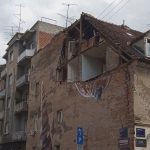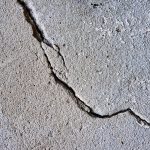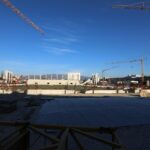The earth moved in the Croatian capital…
On Tuesday evening, an earthquake shook Zagreb and many of its citizens felt it as being more powerful than would be expected given its magnitude of 2.9 according to the Richter scale. Such earthquakes are classified under the category of small earthquakes, reports Tportal on September 16, 2015.
Ivo Allegretti, the manager of the seismological service of the Croatian Geophysical Institute, explained that the instruments showed that last night’s earthquake actually had even somewhat lower energy than 2.9 on the Richter scale, but had relatively strong intensity. “The energy that is released is one part of the story, while the effect it had on people is something else. Now days, most people live in concrete houses and high-rise buildings. The earthquake in Zagreb had the intensity of four to five degrees. It is a densely populated city so the impression of an earthquake is slightly stronger than it would be in a less populated area. Earthquakes with intensity of four degrees are considered to be moderate. They manifest themselves with shaking doors, furniture, glassware, dishes, etc. It seems like a very big truck passed on the street. It will rarely wake anyone up, but last night people were already awake. The yesterday’s earthquake was between four and five degrees, just strong enough to cause fear, even panic, especially among people who were closer to the earthquake, or on the upper floors of buildings”, said Allegretti.
Yesterday’s quake was felt more strongly in the eastern part of the city than in the west. Hypocenter was located at a depth of about five kilometres. In this sense, it belongs to shallower earthquakes which feel stronger. Instruments have not recorded any additional tremors before or after last night’s earthquake.
After minor earthquakes, citizens of Zagreb often remember the one from 1880 which had a magnitude of 6.3 on the Richter scale and the intensity of 8 degrees of the Mercalli scale. Almost all the buildings in the town were damaged, and 12.6% of them were severely damaged. Naturally, the question is when will the next big earthquake hit and how strong it will be. Earthquakes are still impossible to predict, but it is known that Zagreb is located in an unstable area, and Allegretti says that the strongest one could be similar to that from 1880 or slightly stronger.
“The risk of strong earthquakes in Zagreb is comparable to L’Aquila in Italy which was hit in April 2009. That was a slightly stronger earthquake than the one that struck Zagreb in 1880. That implies fairly extensive destruction. Therefore, it is necessary to warn the builders to be cautious”, added Allegretti.










